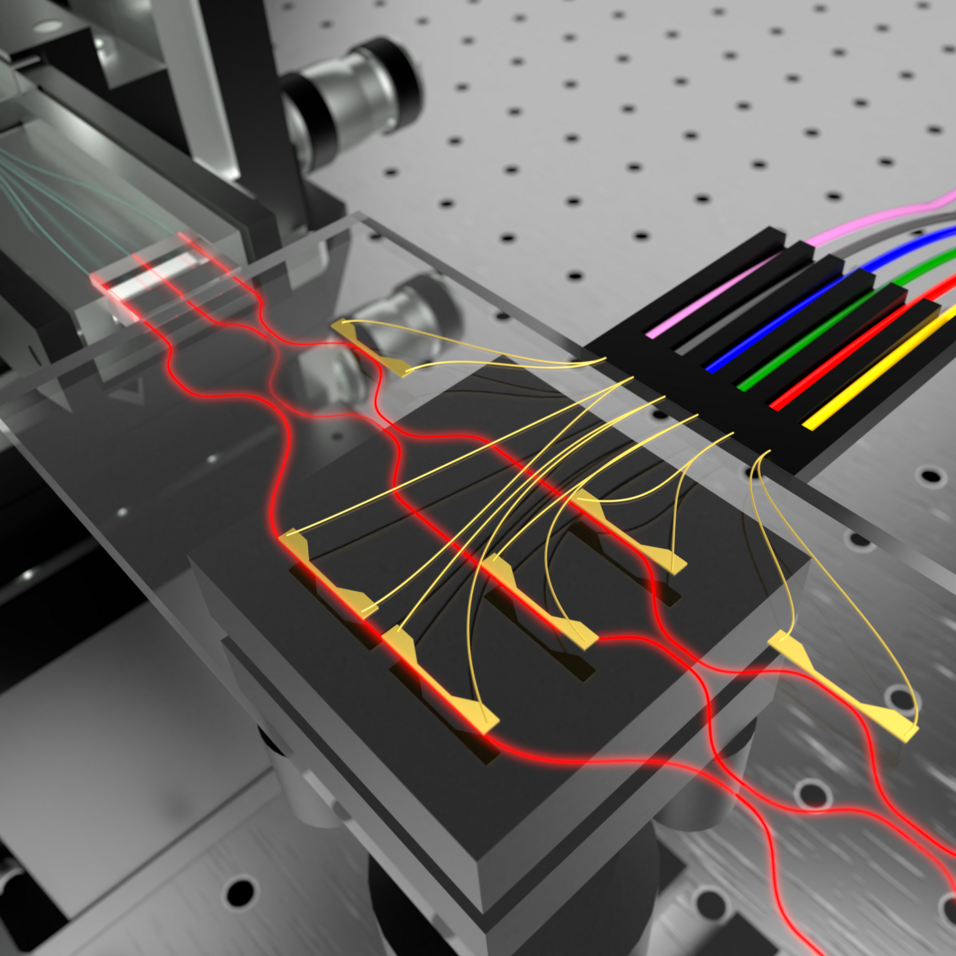Quantum computers are one of the most promising technologies of the future, devices potentially capable of solving problems that are impossible even for the most powerful super computers, but they are still at the prototype stage and there are several possible paths of development. One of the most promising is light-based: the use of photons as qubits. EPIQUE - European Photonic Quantum Computer - was set up in order to investigate in depth the potential offered by the development of photonic quantum computing platforms, a project that aims to lead the way in a domain with wide margins for development.
Prototypes of quantum computers based on photonic technologies have demonstrated important advantages in recent years, in particular having a low decoherence of qubits that minimises the loss of information, a simple infrastructure that does not have to operate at near-zero temperatures as in superconducting processors, and a natural integration with fibre-optic communication systems for networking. As many as three of the four demonstrations to date released of quantum advantage - meaning the ability to perform a calculation process that is effectively impossible for a conventional computer - have been achieved using photonic technologies.
However, existing results have often been limited by bulky and difficult-to-scale devices. Recognising the potential of this technological path, EPIQUE now aims to bring together the many European players, both academia and SMEs, already among the world leaders in various fields of photonic technologies, to realise a general-purpose photonic quantum platform. EPIQUE aims to develop three different demonstration prototypes of photonic quantum computers at tens of qubits and to pave the way towards a more ambitious quantum platform of over 1,000 qubits.
"EPIQUE's work is poised to set a new European standard in photonic quantum computing research”, said Prof. Fabio Sciarrino from Sapienza University di Roma, the EPIQUE Coordinator. “By integrating advancements in both technology and algorithms – added Sciarrino – we are focused on developing a viable trajectory towards an innovative quantum computing platform. The impact of the developed technologies can also affect other application areas of quantum technologies, such as quantum sensing and metrology"
Prof. Philip Walther from the University of Vienna is contributing to the project EPIQUE by developing novel techniques for generating and processing multi-photon states. He emphasizes that “this project really allows to foster Europe’s unique strength in photonic quantum computing”.
EPIQUE, which is funded with € 10 340 000, is one of six projects, based on the same number of technological solutions, designed to physically develop a European quantum computer as part of the Quantum Flagship promoted by the European Commission in 2018 and funded with around EUR 1 billion.
The EPIQUE partners are:
- Università Sapienza di Roma (Uniroma1) Italy
- Consiglio Nazionale delle Ricerche (CNR) Italy
- Università degli Studi di Firenze (Unifi) Italy
- Centre National de la Recherche Scientifique (CNRS) France
- Commissariat a l’Energie Atomique et aux Energies Alternatives (CEA) France
- Quandela France
- Single Quantum Bv (Single Quantum) Netherlands
- Universitaet Paderborn (UPB) Germany
- Ruprecht-Karls-Universitaet Heidelberg (UHEI) Germany
- Qubig Gmbh (Qubig) Germany
- Universitat Wien (UniVie) Austria
- Danmarks Tekniske Universitet (DTU) Denmark
- Nkt Photonics A/S Denmark.
- Laboratorio Iberico Internacional de Nanotecnologia Lin (INL) Portugal
- Naukowa I Akademicka Siec Komputerowa - Panstwowy Instytut (NASK) Poland
- Ceske Vysoke Uceni Technicke V Praze (CVUT) Czechia
- Tyndall, University College Cork - National University of Ireland, Cork (UCC) Ireland
- Interuniversitair Micro-Electronica Centrum (IMEC) Belgium
More information at https://cordis.europa.eu/project/id/101135288
Press office
Leonardo De Cosmo – (+39) 3288981264 – media@quantumlab.it
EPIQUE Coordinator
Fabio Sciarrino – fabio.sciarrino@uniroma1.it

